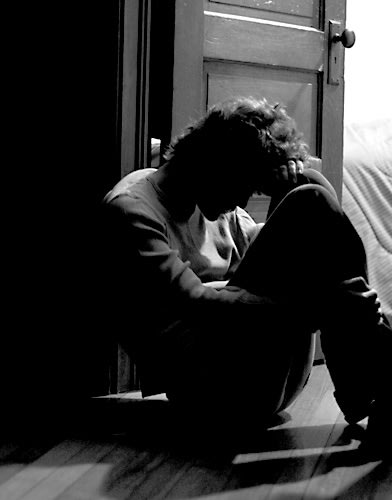The saddest conversation I ever had took place a few years back with an out-of-town niece. She’d come to visit for a few precious days and at the end of our time together, she became quite pensive and withdrawn.
“You look like Atlas,” I suggested, “What is this weight of the world you seem to be carrying on such young shoulders?”
“I feel like Atlas,” she answered, “I made a difficult decision several weeks ago and I’m not sure it was the right choice”.
My niece, age 15 at the time, proceeded to tell me that her closest friend and classmate had come to her with a terrible confession: over a period of ten years, she had been sexually abused by an adult family member.
“She swore me to silence,” my niece went on, “but I realized it wasn’t a promise I could live with. I decided to speak with a responsible adult in my community, someone I respect and admire. Fortunately, this adult knew how to handle it. She reported it to a domestic crisis agency and the agency intervened. They contacted the family and reported that they’d been given reliable information from an anonymous source that their daughter was being abused.”
“The abuse stopped immediately,” my niece continued, “but the family has been torn apart as a result of trying to deal with it. I don’t know if I did the right thing. Do you think I did the right thing?”
“You did an incredibly brave thing,” I answered.
“But at what cost?” my niece responded.
“There are professional counselors who can give you a complete answer,” I suggested, “But one thing you ought to understand is this; it’s entirely likely that your friend was not the only victim involved in the past ten years. You’ve not only saved your friend, you’ve quite possibly saved others as well.”
But this was not the saddest part of our conversation. The saddest part came when I asked my niece why she had not chosen to turn to her parents or teachers. Her response was revealing.
“I didn’t know if the situation would have been believed. I get the feeling that most people in my community don’t think such things happen in good Orthodox Jewish families.”
With those words, my niece hinted at the gaping hole in the safety net of parenting that typically results when we teach our children about “stranger danger” and appropriate physical boundaries. What we neglect to reinforce is the idea that danger doesn’t always present itself in the form of strangers. The insidious nature of child abuse is this: trust is essential to the crime. According to national statistics, 90% of child sexual abuse victims know the perpetrator in some way; 68% are abused by family members.
In a long overdue and unprecedented attempt to address this problem, a broad range of community based organizations are coalescing to fight child abuse and create safety and protection for children by declaring October 17 -24 “National Jewish Child Abuse Prevention Week”. To promote National Week, The Jewish Board of Advocates (JBAC) is joined by the Orthodox Union and other co-sponsors including: the Rabbinical Council of America (RCA), the Rabbinical Alliance of America (Iggud HaRabbonim), the Jewish Institute Supporting an Abuse-Free Environment (JSafe), the Chicago Rabbinical Council (CRC) and Associated Talmud Torah (ATT) of Chicago.
On Sunday, October 17th, Chicago will be hosting the initial seminar, “Protecting our Children from Molesters” with speakers scheduled to address the following issues:
- Awareness of the incidents of molestation and their impact on individuals/community
- How to better recognize and report knowledge of such incidents
- First hand survivor accounts and what communities/parents need to do to support victims of abuse
To learn more or for additional information and resources, please visit www.jewishadvocates.org or click:
The words of this author reflect his/her own opinions and do not necessarily represent the official position of the Orthodox Union.



